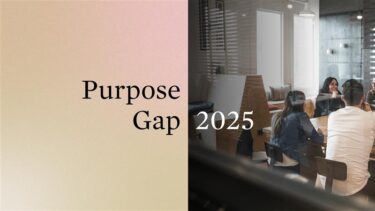
Key takeaways from the event
- How to maintain momentum
- Connecting sustainability to business growth
- How to lead effectively
- Priorities, challenges & opportunities
Share this article
In June 2025, Anthesis Ireland kicked off its inaugural Connect series by bringing together a diverse group of ten sustainability professionals from ten different companies operating across Ireland in a peer-led workshop. The idea was to share challenges, opportunities, and insights in a session focused on leading and influencing in uncertain times.
Designed to foster open conversation and meaningful networking, this in-person event created the space for participants to speak candidly about the realities of working in a sustainability role today. From the challenges of embedding sustainability within an organisation’s business model to the complexities of affecting positive change across teams and operations due to myriad internal and external factors, attendees were able to share examples of real-world experiences and problems they currently face.
We plan to use this first roundtable session as the foundation for future events, with the aim to strengthen relationships amongst like-minded peers and to facilitate discussions on pertinent topics and live scenarios as elected by the group.
Key takeaways
Reflecting on our time together, the key takeaways from our first Anthesis Ireland Connect are summarised below:
Insight #1: Maintaining Momentum
As sustainability leaders, you are all grappling with maintaining momentum amidst one or more of the following: organisational complexity; multiple competing demands; and a shifting regulatory landscape. Nuanced challenges relating to decarbonisation and supply chain engagement emerged as particularly dominant themes.
Specifically, we heard that:
- Internally, sustainability is still often framed as a business cost as opposed to an opportunity.
- Externally, the ESG regulatory landscape is changing rapidly, fostering mistrust in the long-term reliability of regulation as a driver for sustainability planning and investment. Despite this, it was recognised that leaders are keen to maintain momentum on compliance preparedness.
- For some, initial carbon reduction efforts (Scope 1 & 2) are exhausted, and the more straightforward “low-hanging fruit” has been tackled (and achieved). This leaves the challenge of finding new solutions and maintaining momentum within decarbonisation programmes.
- For the majority, addressing and reducing Scope 3 emissions resonated as a consistent challenge for companies of all sizes, geographical spans and sectors. Many face difficulties with supply chain engagement, and the quality of both organisational and supply chain data to enable accurate measurement.
Insight #2: Connecting sustainability to business growth
Across a diverse range of contexts and priorities, many echoed a need to connect sustainability initiatives to revenue and tangible business growth. For this to happen, sustainability cannot operate in a silo but needs to be woven into the core activities of multiple teams.
- We heard details from one attendee on their organisation’s plans to move from a ‘reactive’ to ‘integrated’ state of organisational sustainability in the next three years. This journey requires mindset shifts internally as well as when engaging external partners, suppliers and contractors. A tactical approach of investing in relationship-building activities upfront and prioritising a ‘face before forms’ strategy, resonated with the group – particularly when considering the number of requests being handled by both internal and external stakeholders who may have had very little engagement in sustainability before.
- The concept of maximising the impact of small sustainability teams, by utilising the ‘hub and spoke’ model, and building specific sustainability expertise within expert areas (for example, climate risk within risk functions) has already seen great success within certain organisations.
- It was felt that the ‘why’ or the altruistic nature of sustainability is not always the strongest message when looking to gain internal buy-in, but rather speaking the language of each department – whether that’s sales targets or procurement spend. This is the skill that will ultimately drive results and affect change. The costs (both quantitative and qualitative) associated of NOT “doing” sustainability, however, must also be factored in.
- Attendees recognised that quality data was just one side of the equation with the other being how that data should be communicated in order to ensure effective storytelling and engagement.
Insight #3: Effective leadership
Effective leadership, especially in uncertain times, requires a balance of transparency, emotional intelligence and adaptability. Leaders need to model core ‘human’ values, such as honesty, empathy and authenticity, whilst being strong and agile in the face of rapid change.
While exploring findings from Anthesis’ ‘Leading Through Uncertainty‘ report, it was unanimously agreed that clear communication is essential for effective leadership. In large organisations, however, it was recognised that this is not always straightforward to achieve.
- Participants highlighted that leaders don’t just exist at the top but need to be present and visible at all levels of an organisation.
- Although it was noted that leaders need to be trustworthy and keep promises, there is a reality that, in practice, adaptability and agility is required when navigating change. If communication is consistent and honest in relation to change and decision-making, employees are typically found to be accepting of new plans and course corrections.
- Lastly, we heard that the tone of communication in uncertain times is imperative – employees value honest optimism and a demonstration of courage from their leaders.
Key priorities, challenges & opportunities identified
- Understanding group emissions
- Complying with EUDR
- Embedding sustainability into the design process
- Setting 2025-2030 ESG targets
- Developing and publishing sustainability strategy
- Improving data quality
- Taking longer-term strategic view
- Multiple competing demands
- Challenge of scope 1 and 2 – low hanging fruit achieved
- Scale and complexity of organisation
- Communication with employees and customers
- Innovation e.g. materials
- Supply chain transparency
- Sustainability being seen as a cost, not investment
- Finding the right tool at the right price (improve data and create insights)
- CSRD omnibus uncertainty
- Supply chain engagement: data gathering and validation
- Identifying a source/use of material
- Decarbonisation of LCV vans/ fleet
- Alignment across sectors as a common approach
- Revenue generation from sustainability
- Focus on what matters: reprioritise and nail the basics
- Brand reputation and exceeding expectations
- External communication (first sustainability report)
Next steps
Each participant expressed a strong desire for ongoing peer learning and collaboration. The value of shared language, collective problem-solving, and learning from each other’s approaches was evident.
Whether tackling CSRD requirements, engaging the C-suite, or making the case for sustainability as a growth-driver, the session reinforced a key message: while contexts differ, shared experiences can help leaders move faster and more effectively towards solutions. Anthesis Ireland is committed to facilitating future in-person sessions to further foster connections and to enable peer-to-peer engagement.
A copy of the Leading in Uncertainty report which formed the basis of the conversation can be found here: Leading in Uncertainty
We are the world’s leading purpose driven, digitally enabled, science-based activator. And always welcome inquiries and partnerships to drive positive change together.


